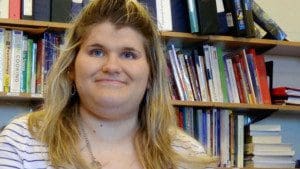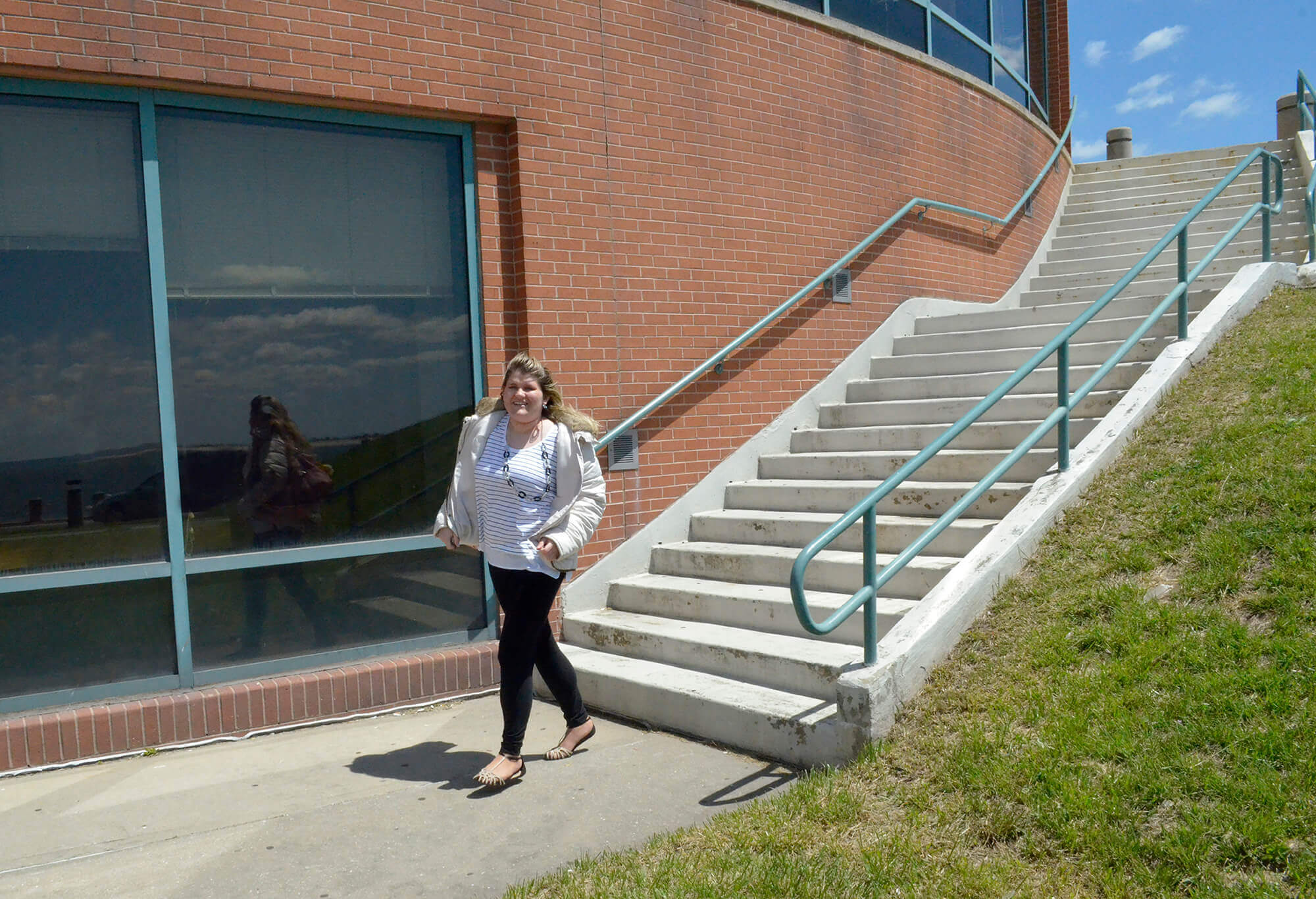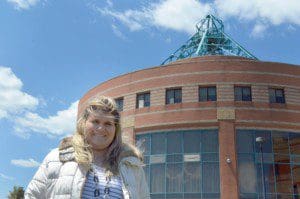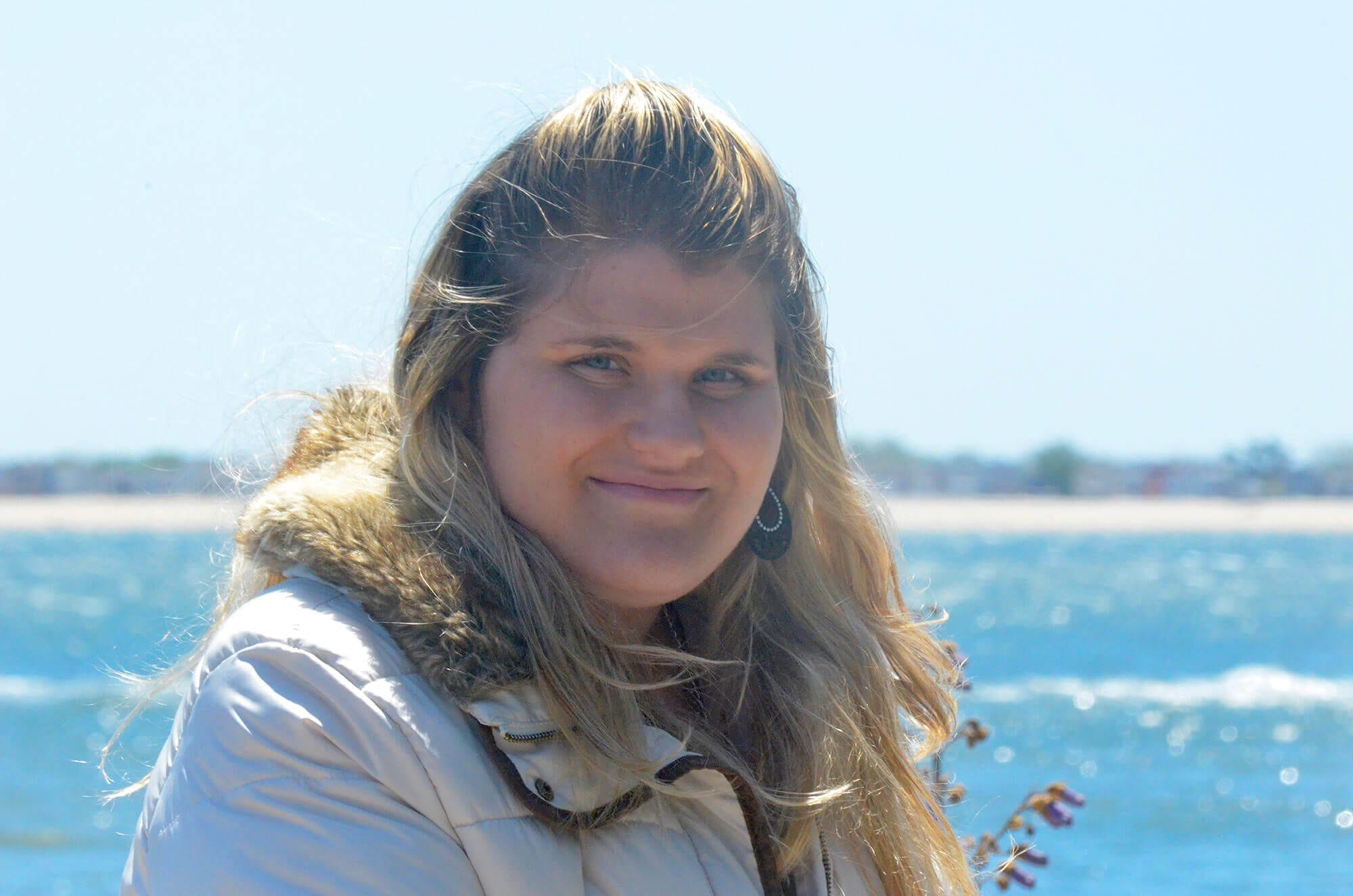In today’s fast-paced business world, offices are working to move away from the use of printed paper, toward digital record-keeping, conserving physical space, increasing the efficiency of professional communications, and streamlining day-to-day office operations. Danielle Levine and her peers at AHRC New York City’s Melissa Riggio Higher Education Program at Kingsborough Community College are learning to use new technologies to support rapidly changing office environments.
“We learned how to write memos and letters,” says Danielle, who majors in Office Administration. “We’ve been using Microsoft Word… PowerPoint for presentations, and we learned how to use Excel for data entry, accounting, you name it!“
Many offices are beginning to incorporate new technologies into their communications. While email remains the most widely-used means of communication in the professional world, recent years have seen an increase in the use of teleconferencing, made possible through the use of web cameras. Danielle and her peers are learning how these devices work and are using them each day.
“I started on August 3rd, 2015, and so far I’ve had a really interesting first year,” says Danielle. “We learn about independence, we learn about how to survive in this real world.”
About the IEP Diploma
Danielle hopes to develop a career in hospital office administration, helping patients to register for their visits. She takes pride in having learned to use the tools of the professional world; however, one important obstacle stands out in her mind, and it could significantly impact her ability to build a career.

When she graduated from high school, the diploma Danielle received was not the same as a diploma that is routinely awarded to students without disabilities, (referred to as a local or Regents diploma). Instead, she received a Skills and Achievement Commencement Credential for Students with Severe Disabilities, (also known as an IEP diploma.)
In New York State, students with intellectual and developmental disabilities have an Individualized Education Plan (IEP). IEPs include educational goals that are developed for a student, accounting for that student’s disability and his or her appropriate level of learning standards. Although students who have IEPs are provided with opportunities to graduate with Regents diplomas, in many cases, they instead receive an IEP diploma after turning 21, or after they have attended school for at least 12 years.
“I have all the credentials and qualifications to be a good office administrator,” says Danielle. “It’s just the people who are going to give me a chance. Every time people who have IEP diplomas walk into an interview, or do applications… they get rejected because the employers only accept people who have a high school diploma or a GED.”
The IEP Diploma as a Potential Hindrance to a Career
Receiving any type of diploma can be an important milestone for any student, but the IEP diploma is often not accepted by employers because it is not a standards-based diploma, and it is not recognized in New York State as being equivalent to a typical high school diploma. Students with IEP diplomas are likely to be significantly limited in their employability and earning potential.

Danielle feels this situation is unfair and discriminatory against people with disabilities. “We can do as great a job as a person with a high school diploma and a GED, and I can prove that because last year I got the highest mark in my class on my office administration exam.”
Traveling to Albany to Speak Out
Held annually in Albany, the NYSACRA-NYSRA Legislative Policy Forum is a two-day event organized to allow attendees with disabilities to meet with their State Legislators to advocate for their own issues and concerns. AHRC New York City conducts regular self-advocacy meetings in all boroughs of New York City, in order to prepare self-advocates to engage with people in their local communities, and in Danielle’s case, to meet with members of the Assembly to tell them about the issues that matter most to her.

“February of this year, I went up to Albany to speak to Legislators about my issues,” says Danielle. “It was a really amazing experience because [through the process, I learned] I’m really good at this. I have a talent for advocating to legislators! We met with Tracy Gardner. She is the Assistant Secretary of Health to Mr. Andrew Cuomo. At first, I was a little nervous, but… I spoke my mind and I got straight to the point.“
While in Albany, Danielle also had the opportunity to meet Evan Yanky, New York City Regional Coordinator, Self-Advocacy Association of New York State. “He’s going to help me out with my issue. He’s found some parents who advocate on my issue. Because all they want to see is for their kids to succeed, no matter if we have a disability or not.”
Evan has arranged for Danielle to video conference with parents who share her concerns on the first Tuesday of each month, to see what they can do to help. Additionally, Danielle is working with a network of advocacy organizations across New York City to educate them about her issue and to work together.
When asked for her best advice to people who want to learn to advocate for their own issues, Danielle says, “If you have something to fight for, go to these legislators and speak your mind, and get straight to the point. Make sure they hear you out, and maybe they will help you with your issue along the way.“
